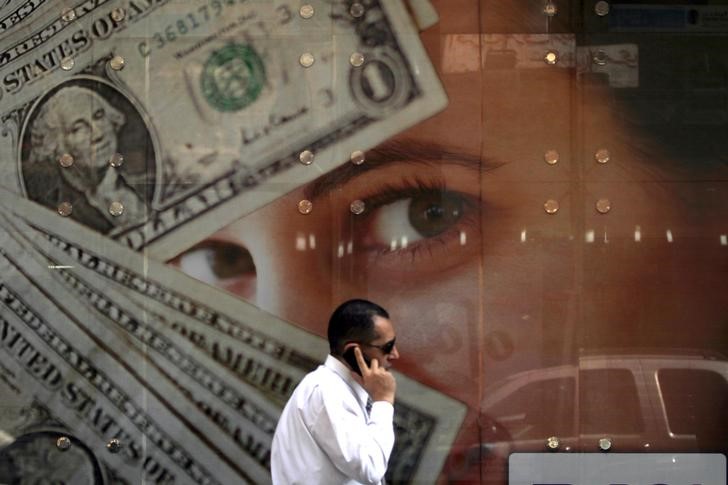Investing.com - The dollar fell against its rivals Friday as data showed the U.S. economy created fewer jobs than expected and services activity slowed in July.
The U.S. dollar index, which measures the greenback against a trade-weighted basket of six major currencies, fell by 0.15% to 94.86.
The U.S. economy added just 157,000 jobs in June, well below forecasts for 193,000 new jobs, while the unemployment rate was unchanged at 3.9%, the Labor Department said on Friday.
Analysts played down the weaker nonfarm payrolls, saying the underlying trend of U.S. job creation remained on track.
"Even with today's miss, the trend in payroll growth remains solid," Wells Fargo (NYSE:WFC) said.
Average hourly earnings grew 0.3% in July, and 2.7% in the 12 months through July, in line with economists' forecasts. But analysts said the timid wage growth does little to support the Fed's position that tighter labor markets would lead to price pressures.
"Wages are moving up but we're not seeing a spike in wages that would concern the market about a sudden rise in inflation," said Evan Brown, director of asset allocation at UBS Asset Management. "There's not much of a reaction in markets at the moment."
The services sector, a critical component of the US economy accounting for roughly 80% of U.S. private-sector gross domestic product (GDP), unexpectedly weakened in July, according to the Institute of Supply Management's Index.
ISM non-manufacturing data for July showed an drop to 55.7, missing expectations of 58.6.
A rise in yen on safe-haven demand amid fresh U.S.-China trade-war fears also held back the dollar.
China is reportedly preparing to retaliate - against the United States' recent threat to raise trade penalties on goods imported from China - with tariffs on about $60 billion worth of U.S. goods.
USD/JPY fell 0.38% to Y111.23, while USD/CHF fell 0.25% even as the Swiss National Bank said there was room to lower rates if needed.
EUR/USD rose 0.05% to $1.1591 while USD/CAD fell 0.35% to C$1.2978.
GBP/USD fell 0.01% to $1.3017 amid Brexit-related angst after the Bank of England governor Mark Carney said the risk of a no-deal Brexit was "uncomfortably high."
